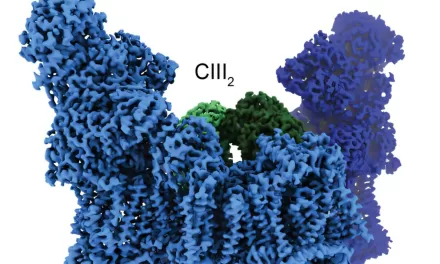Berlin – A new study conducted by Universitätsmedizin Berlin has revealed that a single dose of the Imvanex vaccine provides 84% effectiveness against mpox in individuals without HIV. However, the research has also found that this single dose fails to offer sufficient protection for people living with HIV, emphasizing the critical need for a full two-dose vaccination regimen for this at-risk group.
The findings, published in The Lancet Infectious Diseases, stem from a comprehensive study involving over 9,300 participants, including men and trans individuals who reported having sex with multiple partners. The study, commissioned by the European Medicines Agency (EMA), aimed to assess the real-world effectiveness of the Imvanex vaccine, initially developed for smallpox, against the mpox virus.
“Our results confirm that a single dose of the vaccine provides good protection against mpox, at least for a short time,” stated Prof. Leif Erik Sander, Director of the Department of Infectious Diseases and Critical Care Medicine at Charité. “However, this only applies to people not living with HIV. Unfortunately, we found that people with HIV—even those taking adequate medication—are not sufficiently protected by a single dose.”
The study compared mpox infection rates between vaccinated and unvaccinated participants over a two-month period. In HIV-negative individuals, the vaccine demonstrated 84% effectiveness, indicating strong protection. However, in people living with HIV, the protective effect was statistically insignificant.
Researchers attribute this difference to the role of T cells in developing immune protection. “These T cells often appear at lower levels in people with HIV and are not fully functional, which translates to a weaker immune response,” explained Prof. Sander.
The study strongly recommends that all at-risk groups, and particularly people living with HIV, receive the full two-dose vaccination regimen recommended by Germany’s Standing Commission on Vaccination (STIKO). “We assume that people living with HIV develop protection against mpox after the second vaccine dose, and urgently advise these people to receive the two vaccine doses recommended by the STIKO,” emphasized Prof. Florian Kurth, Head of the Clinical Infection Research Group at Charité.
The research also found that vaccinated individuals who did contract mpox experienced milder symptoms, including fewer and faster-healing pox lesions, and reduced systemic symptoms. The vaccine was also deemed safe and well-tolerated, with the most common side effect being pain at the injection site.
The study’s findings are relevant to the clade IIb mpox virus, which circulated during the study period, and are expected to offer cross-protection against the currently circulating clade I in Central Africa. The researchers plan to conduct further studies to determine the long-term effectiveness of the vaccine and the impact of a third dose.
Disclaimer: This news article is based on the provided information and should not be considered medical advice. Individuals seeking information about mpox vaccination should consult with a healthcare professional. Scientific studies are subject to further review and validation.












